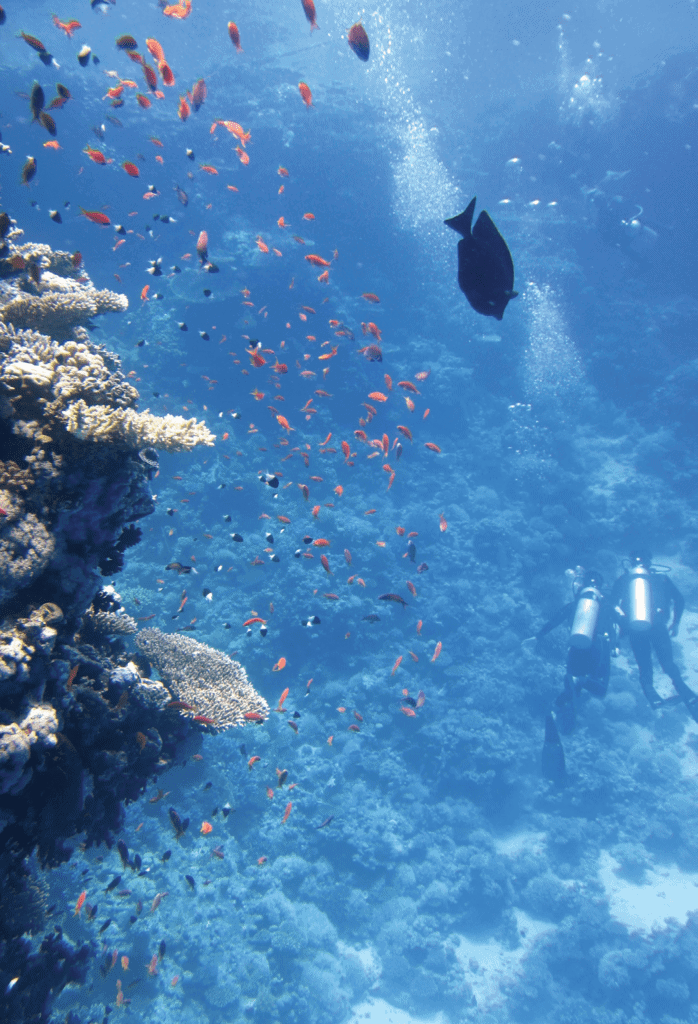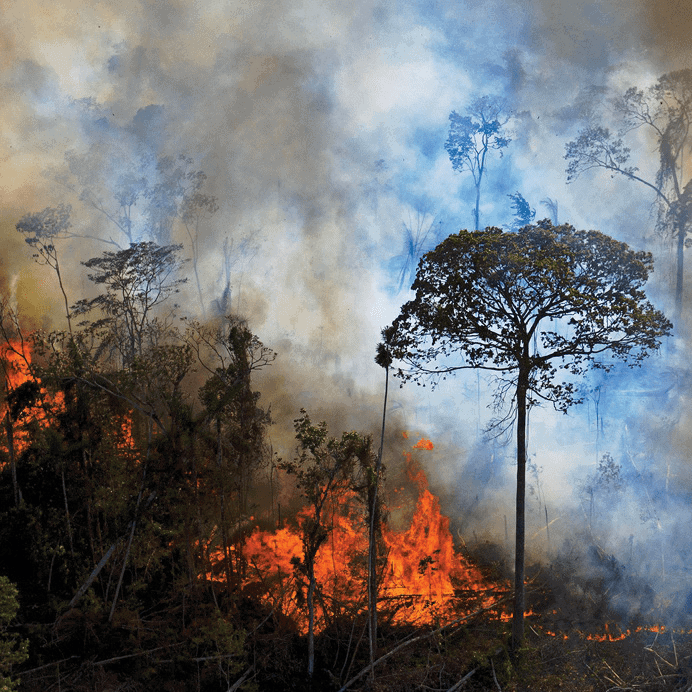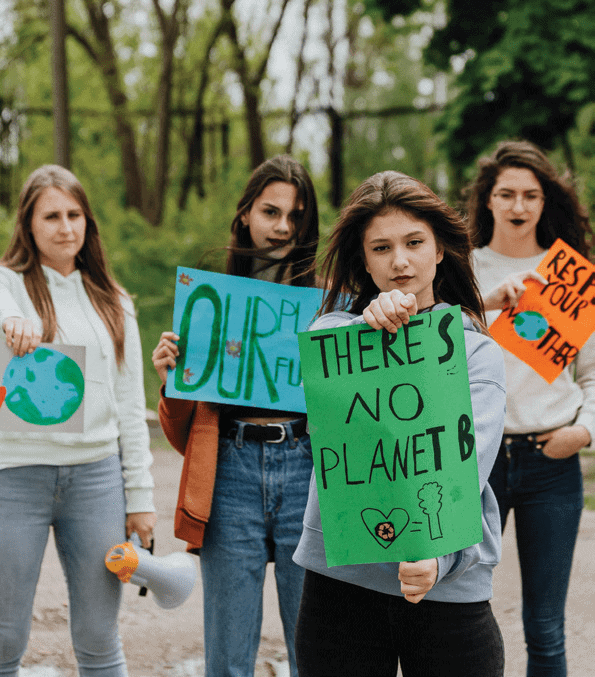“Northern California wildfires force thousands to flee their homes” – Economic Times. “Canada heatwave cooks up to one billion shellfish alive” – DW News. “Europe floods: At least 120 dead and hundreds unaccounted for” – BBC. “The Philippines’ sea level rise may be faster than global average: climatologist” – ABS-CBN News.

No, you’re not reading news from a movie with an apocalyptic theme. This is fact. The previous headlines were released only in recent months. These extreme weather conditions across the globe are signs of an existing climate crisis which, undoubtedly, can be attributed to man’s irresponsible behavior towards the environment. Our planet’s temperature has already increased by 1 degree Celsius and what textbooks once described as unimaginable has now become a reality. In fact, we are already under Code Red,[1] as United Nations Secretary-General António Guterres called the Intergovernmental Panel on Climate Change (IPCC) Report.
Humankind’s collective recklessness, especially in recent decades, has brought this climate crisis upon us. Thus, it will also be our collective action that can heal our planet, making it a better place again for us and our posterity. In 2015, the Paris Agreement was adopted by 217 nations. It was an international treaty that set long-term goals, among which is to limit the increase of global temperature to 1.5 degrees Celsius. To concretely realize this, countries shall submit their climate actions, known as Nationally Determined Contributions (NDCs), to the United Nations Framework Convention on Climate Change. Last April 15, 2021, the Philippines submitted its first NDC that committed to making efforts to cut down greenhouse gas emissions by 75% (2.71% unconditional and 72.29% conditional) until 2030 in various sectors, such as energy use in transport, as well as wastewater and landfills.
Other countries have also submitted their NDCs and will continue to do so every five years. What each country can contribute and collectively achieve with other countries is critical to determining the sustainable future we want for ourselves. Reducing greenhouse gas emissions to halt a temperature increase to 2 degrees Celsius and pursuing efforts to limit the increase even further to 1.5 degrees Celsius is necessary for humanity’s survival. This will result in “420 million fewer people being frequently exposed to extreme heat waves, and about 65 million fewer people being exposed to exceptional heat waves,” according to the latest IPCC report. And for a country that’s often visited by typhoons, achieving this limit will mean lesser heavy precipitation and flood hazards.
We must seriously work hard for the 2030 deadline the Philippines and the rest of the world have set for themselves. The positive result of all actions, by that time, will give us a fighting chance in limiting global temperature. Otherwise, we won’t be able to resolve the situation anymore and will have to face the inevitable consequences of climate change on health, food security, the economy, and human survival. Will we allow the manifestations of the climate crisis to become our “new normal”?

So, what should institutions such as government and business do? Following the various efforts already applied by other countries, our government should also declare a nationwide state of climate emergency. Basically, it is a legislative measure that acknowledges the climate crisis. Such a declaration can speed up the implementation of urgent actions to mitigate the impact of climate change. Through the same piece of legislation, we can establish an Inter-Agency Task Force for Climate Change Mitigation and Adaptation. From the start of the present health crisis, we have seen how the Philippines took a “whole-of-government” approach in battling the pandemic. It’s a recognition of the scope of the pandemic, which has caused damage not only in public health management but also in labor, agriculture, tourism, and other sectors. This recognition led to the establishment of the COVID-19 IATF (Inter-Agency Task Force) for the Management of Emerging Infectious Diseases.
In the same way, we can also elevate much-needed pressure for operations that must involve different government agencies to review existing policies and programs and recommend substantial measures. Such measures include observance of proper waste segregation at the household level and a more systematized waste management in cities; ecological education at the household level (including composting); rehabilitate areas that have been damaged or become at-risk because of human activity such as irresponsible mining; environmental protection against threats of further destruction or commercialization (for example, the Verde Island Passage,[2] considered the ‘Center of the Center of Marine Biodiversity’); imposing stiffer penalties on violators of environmental laws, and the promotion of sustainability in agriculture, fishing, architecture, tourism, and business.
Likewise, the same declaration may find creative ways of hastening divestment from coal and the shift to renewable alternatives, such as geothermal and hydropower, which have proven to be promising sources of energy in the presentation of Mr. Richard Tantoco, President of Energy Development Corporation, for last year’s Season of Creation virtual celebration. We need to rethink the way we measure economic growth. Some people believe that having a pro-environment stance is not compatible with economic development, that we only have to choose one over the other. Why should we remove environmental impact from the equation? Alternative tools to determine a healthy economy exist, such as the Genuine Progress Indicator (GPI) proposed by Clifford Cobb, Ted Halstead, and Jonathan Rowe. Technically, it is an attempt to improve on the computation based on the Gross Domestic Product (GDP) by including other factors that weigh in favor of the environment, such as non-usage of ozone-depleting substances. This is only an example of an alternative. Economists and governments can find other ways, taking into account not only the production and consumption of goods and services but also the subtraction of the harmful effects of said production and consumption to the environment in the measurement of economic growth.
The emergence of plant-based food is something worth studying and exploring. This does not only benefit our health but also the environment since it reduces carbon footprint by 73% according to an Oxford University study as reported by The Independent. A month ago, I tried a burger with a plant-based patty, and it tastes as delicious as the original beef patty.
There’s much to be explored with a climate emergency declaration, including various ways to resolve the problem of plastic waste. Last July 28, 2021, 190 lawmakers passed House Bill 9147 banning single-use plastics in the Philippines. This is a significant step that we must support. Actually, our Department of Environment and Natural Resources (DENR) already has a major agency tasked to implement Republic Act 9003, the Ecological Solid Waste Management Act of 2000. However, in the barangay (village) level, there is still much to be desired. We must speed things up, galvanizing the grassroots into action. Time is running out, with the 2030 deadline less than a decade away. It is my sincerest hope that reports of government leaders, which usually include the creation of jobs and infrastructure, will also consider how we concretely take care of the environment.

On the other hand, we cannot depend on the government for everything. What good are all these laws and agencies if we fail to do our part? We have to undergo an “ecological conversion” which entails getting rid of the so-called “throw-away culture.” Thus, the Youth for a United World have taken on the challenge put forward for its members and the rest of the world – #DareToCare: People, Planet, and our Ecological Conversion. “Acknowledging that everything is interrelated, we have understood that care for the earth and care for others are inseparable. We cannot remain aloof anymore nor can we set it aside. This is not the time to be bystanders. This is the time to stand together and roll up our sleeves because, despite our differences, we have one common home, and we have a shared responsibility to take care of it” (Message of New Humanity International for International Youth Day 2021). It is a call to action for every individual to change his or her lifestyle to one that encourages zero waste. As the Gen Verde song goes, it’s “time to turn around.”
Working-from-home, now part of the “new normal” because of continued restrictions due to the pandemic, could also be an opportunity to review how our households advance or impede cutting our carbon footprint and greenhouse gas emissions. We need “Laudato Si’[3] Families”! Parishes and dioceses should consider establishing a Ministry for Ecology or for the Care of Our Common Home, if they have not done so yet. Recently, the Catholic Bishops’ Conference of the Philippines (CBCP) launched its National Laudato Si’ Program which these ministries for ecology can help cascade to local communities and provide venues for initiatives on responsible stewardship of creation. This is a call not only for Catholics but also for all Christians and all people of good will! The #DaretoCare campaign calls us to learn more about our present situation, act in collaboration with others to implement local strategies, and share this experience online to have a global impact. That’s not for one year alone. In fact, the Focolare Movement has included responding to the cry of creation as part of its priorities for the next six years.
A few weeks ago, I just finished watching an entertaining yet educational anime entitled “Cells at Work!” It’s a Japanese manga/anime series that showcases the life of the cells in the body, including the Red Blood Cells, White Blood Cells, and the like, and their indispensable roles in the human body, like delivering oxygen or protecting the body from infection and other diseases. I find ourselves in a similar situation with these cells at work. We may look at ourselves as a speck of dust in the almost 8 billion global population, and our decision not to use a plastic straw may seem insignificant in terms of impact. However, we must realize that each action done together in favor of our planet’s health can make ripples that can change us and, with God’s Spirit, “renew the face of the Earth.”[4]
Giancarlo “Gio” Francisco
[1] An emergency situation or threat of a dangerous situation
[2] A strait that separates the islands of Luzon and Mindoro, connecting the West Philippine Sea with the Tayabas Bay and the Sibuyan Sea beyond.
[3] Pope Francis’ encyclical on care for [the Earth,] our common home
[4] Psalm 104:30




